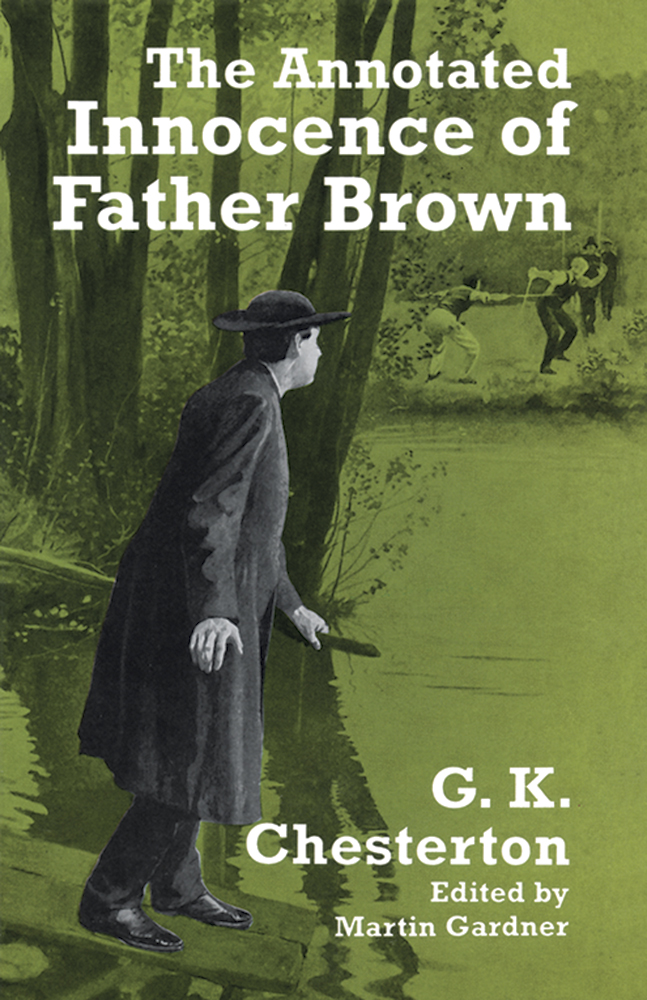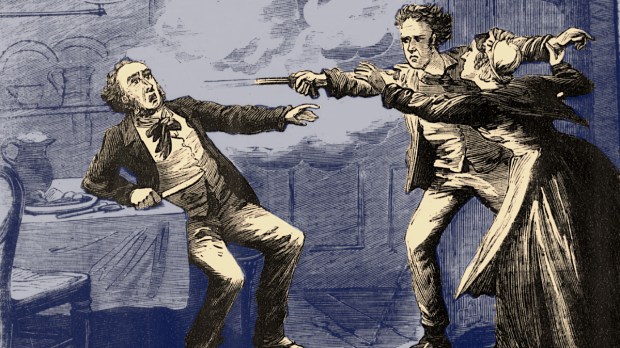I agree that headline is a bit sensationalistic. There are other crimes in the pages of the Advent book I am recommending, including a few robberies committed by a very industrious thief. Mostly the book is filled with murders, however: an American philanthropist beheaded, an inventor slain while surrounded by his machines, the brother of a cleric who has his head bashed in …
By now you are probably asking, “What does this morbid nonsense have to do with Advent?” To which I answer that murder has quite a lot to do with Advent and Christmas. Need I remind you what Herod the Great did to the Holy Innocents? Or that the babe that laid in the manger in Bethlehem would grow up to be betrayed and killed by his own?
Christmas is associated with “Peace on Earth” and choirs of angels – rightfully so – but amid all the mistletoe and good cheer we tend to forget that the child Jesus has entered a fallen world. If people were not so wicked, in fact, there would be no need for Christ.
A crime-solving cleric
G.K. Chesterton understood this, as did his great literary creation, the crime-solving Father Brown. That’s why I chose The Innocence of Father Brown (Chesterton’s first collection of Father Brown mystery stories) for my Advent reading this year.
Unlike Sherlock Holmes or Nero Wolfe, Father Brown doesn’t have a particular passion for detective work. He’s a genius at solving crimes, but crime is not his main concern; that’s a problem for the police. Instead, whenever he stumbles upon murders or robberies, Father Brown feels compelled to track down the perpetrators so that he can try and turn their souls back toward God.
That’s what Christmas is about, too. Jesus did not enter the world to solve all our crimes (i.e., our human problems), but to win over our hearts and show us how much our Father loves us. Chesterton’s Father Brown, a man of “second rate” appearance, does exactly the same thing in his roles as one of Jesus’ servants. Thanks to his ministry and especially his time in the confessional, he has developed a keen understanding of human beings and their motives. Other detectives follow physical clues, but Father Brown follows those almost imperceptible traces left behind by immortal souls in turmoil.

The abyss of sin
Some critics complain that Chesterton’s stories are contrived, and I would agree. What the critics have failed to realize is that the real world is also rather contrived and often downright insane. That’s why The Innocence of Father Brown comes across as more truthful and realistic than your average piece of so-called realist fiction. Take this passage from the 1910 story “The Queer Feet”:
The waiter stood [silently] staring a few seconds, while there deepened on every face at the table a strange shame which is wholly the product of our time. It is the combination of modern humanism with the horrible modern abyss between the souls of the rich and poor. A genuine historic aristocrat would have thrown things at the waiter, beginning with the empty bottles, and very probably ending with money. A genuine democrat would have asked him, with comrade-like clearness of speech, what the devil he was doing. But these modern plutocrats could not bear a poor man near to them, either as a slave or a friend.
Something about that “contrived” moment rings terribly true, even a hundred-plus years after Chesterton wrote it. In fact, it is the “modern abyss” between people that makes the particular crime in that story possible — and Father Brown recognizes that it is a sin that is much harder to root out than a simple theft.
“Only my friend told me exactly why I stole”
In another story, a crime is committed by an “Invisible Man.” That might strike you as another contrivance, because invisible people don’t exist. And Chesterton might reply: Is that so? Would you please describe for me the salesclerk who rang up your Christmas purchases yesterday, or the delivery driver who left that package at your door this afternoon?
His gentle rejoinder would be uttered with a friendly smile, of course. Like Father Brown, Chesterton loved people – not humanity in general, mind you, but actual flesh and blood people; that is, sinners. In the book there is one particular thief named Flambeau who Father Brown ardently loves and pursues. Later Flambeau will say about Father Brown: “Only my friend told me that he knew exactly why I stole; and I have never stolen since.”
A baby who will grow up to fish for people
As Christmas draws near, let’s remember that the baby in the manger will grow up to become a fisher of people. He will catch them “with an unseen hook and an invisible line that is long enough to let [them] wander to the ends of the world, and still to bring [them] back with a twitch of the thread,” just as Father Brown does with the poet-thief Flambeau.
That baby will grow up to befriend tax collectors, prostitutes, and gangsters like Zacchaeus. In the ensuing centuries, he will win over untold numbers of forgers, murderers, and extortionists, along with liars, adulterers, and self-centered jerks. The love that this baby has for us sinners is so extreme, in fact, that it will lead him all the way to the cross – and even there, before his last breath, he will save the “Good Thief” hanging next to him.
Note: For readers interested in purchasing a physical copy of the book, I highly recommend The Annotated Innocence of Father Brown, with notes by the great scholar Martin Gardner.



